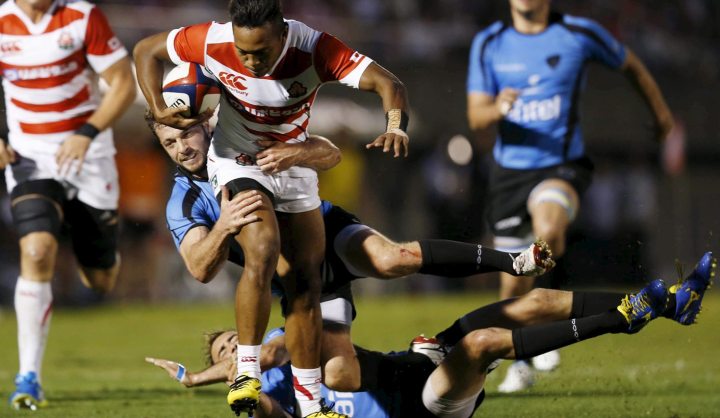Sport
Rugby World Cup: Whose nationality and patriotism is it anyway?

As the Rugby World Cup looms, the question of players born in Country X representing Country Y is slowly creeping into the discourse. Some say they are mercenaries, but maybe it’s just a symptom of the growing global village. By ANTOINETTE MULLER.
Ah, patriotism. That heady feeling of associating yourself with where you come from and sometimes believing that national colours in sport should belong only to those born on this soil. It’s a nice idea in theory, but the professionalisation of sport and the money that has been ploughed into it has changed the very fabric of sporting teams around the world.
For years now, South Africa has been a great exporter of sporting talent. This year’s Rugby World Cup will feature more than 10 South African-born players scattered through different teams. Even Japan’s Kotaro Matsushima was born in South Africa, but went on to complete his schooling in Japan. The world is a small place and from soccer to Olympics, professional sports people have taken to the global village for a myriad of reasons.
For those who believe that sport – especially the international variety – is all about patriotism, exporting talent doesn’t sit so well. Those who stick their noses up at this expanding landscape reckon World Rugby should be stricter because of ‘patriotism’ and because of the lucrative pull of foreign currencies. And therein lies the rub. Sport, for the most part, is a job. Nations competing against each other for ‘national pride’ is often little more than thinly veiled propaganda on which governments like to ride.
Think, for example, of South Africa’s ‘Bok Friday’ campaign – in which supporters are encouraged to show their support by wearing a Springbok jersey. That jersey is likely to set you back around R1,000. Even the ‘cheaper’ supporter’s wear will still cost around R200. In a country where many people cannot even afford the most basic expenses, this kind of patriotism does nothing more than further divide people. But hey, what’s a little bit of patriotism in times of poverty? Sure, when you’re crying into your R100 pint in a pub in Newcastle and a flashmob starts singing Shosholoza, your eyes might get a little bit wet, but overall, patriotism is little more than a fuzzy feeling about nice things.
The point is that in many countries, the national players of a team are so far removed from the general public that there is little your average Joe can relate to other than the fact that they carry the country’s name on the scoreboard. Cynics will say that with this in mind, even if players were to come from Mars it would hardly matter as the main aim of sport is to win. Nation building and all those luxury extras are nothing more than lucky by-products.
Does it really matter, then, that we are seeing more and more that players born in Country X going on to represent Country Y in global competitions, especially if those players had a slim chance of actually representing their country of birth?
During the last World Cup, four out of 30 of the All Blacks squad were born outside of New Zealand. In contrast, the Samoan squad had 22 players born in New Zealand. The All Blacks are hardly suffering because of this exchange. On the contrary, Samoa have benefited as many of those 22 players completed their schooling in New Zealand and went through the school system that has produced such a powerful rugby dynasty.
The danger, of course, is that the smaller nations will suffer a skills vacuum. We’ve seen it happen with cricket, where Ireland’s players have shifted over to England for the possibility of playing Tests. But rugby is a far more inclusive sport than cricket and even the ‘smaller’ teams have the opportunity to compete in World Cups and play internationally. As leagues around the world become richer, talented players will have the opportunity to earn foreign coin without having to sacrifice their ‘nationality’. And that really is where the bulk of the focus should lie. Nobody can tell World Rugby to police the amount of ‘foreign-born’ players in their squads. That is a small-minded notion. Instead, the focus should be on the domestic leagues, where talent is developed and nurtured. As long as leagues around the world ensure that there is a cap on the ‘local’ players per squad, especially when leagues in America start popping up, who is born where should hardly matter. DM
Photo: Japan’s Kotaro Matsushima (C) is tackled by Uruguay’s Felipe Berchesi (behind Matsushima) during their international rugby test match in Tokyo August 29, 2015. REUTERS/Issei Kato.



















 Become an Insider
Become an Insider